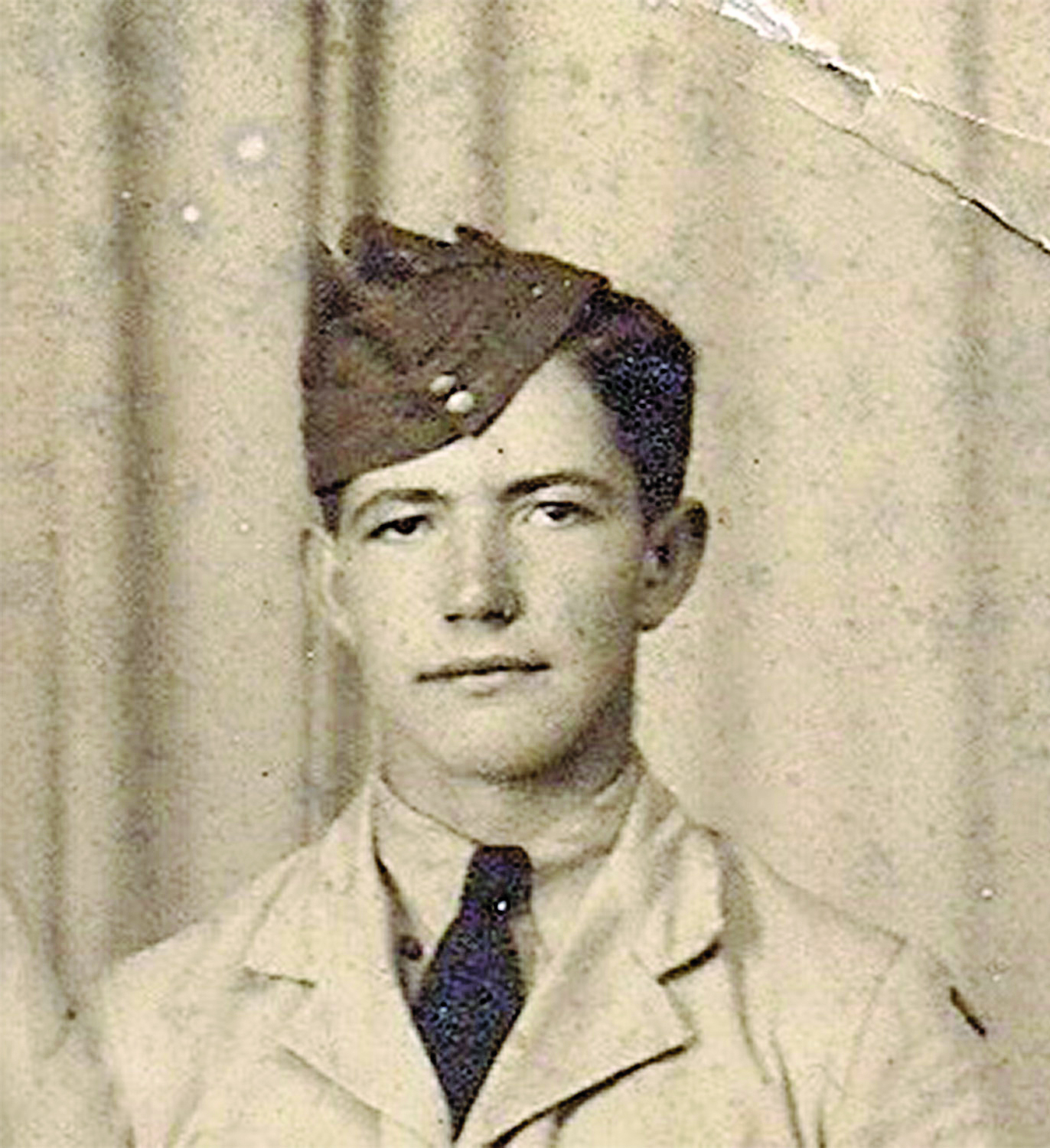Lou Giancarlo and Tom Slater
Ignoring the advice of his parents and brother, Gerald Kelly enlisted in the Canadian army in May of 1943.
The eighteen-year-old reasoned he should go because his chums were going, and together they could “get the war over sooner.”
Such sentiments were echoed time and again by young men who were bound by a sense of loyalty, both to their country and their friends.
Kelly came from a large family of three brothers and five sisters. He was born, raised and attended school in Sarnia and began work at the age of 17.
But as soon as possible he answered a greater call.
During basic training in Listowel, Ont. an army examiner noted he had “a high degree of self-confidence and an assertive personality, adding he was a bright, pleasant lad …[who] should be watched for evidence of leadership ability.”
Kelly embarked for England in February 1944 and became a private in the Algonquin Regiment Infantry Battalion, Royal Canadian Infantry Corps.
His sanguine outlook shone through in a letter he wrote his mother that April, in which he said he greatly enjoyed the regimental dance. Tellingly, he also asked his mother not to save his remitted pay for him and to deposit his 5th Victory Bond in the bank in her name.
Kelly arrived in France in July and served in the Battle of the Scheldt, near the Dutch-Belgium border. As a prelude to battle, the Algonquin Regiment was tasked with clearing the Scheldt estuary of German defenders, and it had soon suffering 158 casualties.
Kelly had his birthday on Sept. 13, and one day later he died trying to save his wounded sergeant. His mother received a letter shortly after from a Major Cassidy, who wrote:
“It may help you to know he died a hero’s death. After 24 hours of the hardest fighting this unit has ever seen or known, during which time Gerald distinguished himself on several occasions for bravery, the unit was ordered to withdraw – across a water obstacle.
Gerald was already at the obstacle and about ready to enter a boat, when it became known that a wounded sergeant, who was supposed to have been carried by another party, could not be found. Gerald and another sergeant, without being ordered or asked, at once returned through heavy shell and machine gun fire to bring back the wounded party. He was on his return with the sergeant on his back when a shell struck close by, killing him instantly. The other rescuer was wounded, but managed to get back, and he told me this story.”
Gerald Kelly was posthumously awarded a Certificate of Recommendation in January 1945 in recognition of his bravery and devotion to duty. The Ministry of National Defense expressed its sincere regret “that your son did not live to receive this award.”
He rests in Adegem Canadian War Cemetery in Adegem, Belgium. And his legacy remains, as he would have wished: a true soldier and a true friend.


